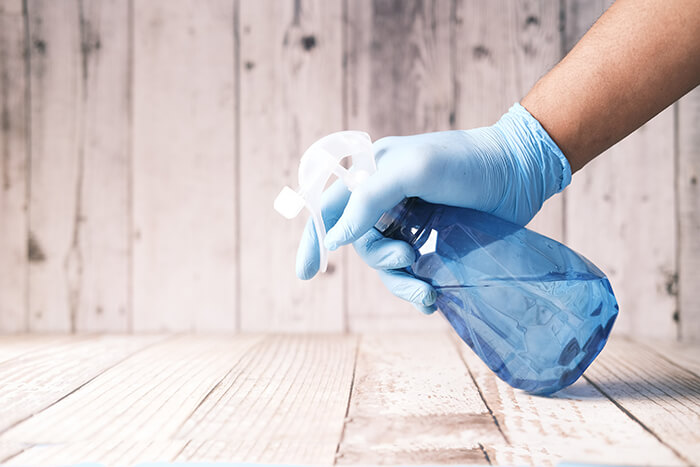
Keeping your home clean and your new nursery germ-free is always going to be a priority when you’re pregnant. And after your little one arrives it will become even more essential! But it’s important to note that many commonly-used household cleaning products are laden with chemicals that can harm you, your unborn baby and other young kids in your home.
Read on to discover which cleaning products you need to avoid when you’re pregnant or have kids in the house. Using safe cleaning products should always be a priority as even once born, harmful cleaning chemicals can have a detrimental effect on your child’s health and development.
Chemicals to Avoid During Pregnancy
During pregnancy, the ‘template’ for your baby’s body, brain, and immune system is forming, so whatever you touch and inhale can cross the placental barrier. According to the New York Times, there are numerous chemicals that pregnant women should avoid. One of the most toxic is oven cleaner as it uses a high concentration of sodium hydroxide and butoxydiglycol. These ingredients are incredibly corrosive and can cause severe damage if inhaled. Oven and other cleaning products that contain glycol ethers are also high risk as they can lead to a miscarriage or birth defects.
Very Well Mind explains that fragranced cleaning products are best avoided as they generally contain phthalates. Pre-natal exposure to this chemical can increase the risk of congenital reproductive anomalies in boys, highlighting just how toxic it is. The sweet smell of lavender or fresh smell of lemon in cleaning creams, gels, and bleaches is not natural, and phthalates are often found in laundry detergents and softeners too.
Parabens, while not as dangerous, are still best avoided while you’re pregnant. While there’s some debate as to whether these chemicals are harmful to pregnant women, they act like estrogen in your body, so erring on the side of caution is advised. Aerosol sprays are a no-no as they can increase the risk of asthma in your baby. Inhaling chemicals like alcohol, ammonia, chlorine, sodium hydroxide (caustic soda), acrylic polymers, terpenes, and glycol and glycol-ethylene could potentially harm your baby’s respiratory tract. However, when not in aerosol form, many of these chemicals are safe to use.
Going Natural
Knowing what’s in your cleaning products is the best form of defense. Reading the labels helps you to pinpoint any dangerous chemicals, and you can consult the Environmental Working Group website to check which products pose health risks. It’s essential that you use products correctly, as combining products can create dangerous fumes. For example, mixing ammonia and bleach can be incredibly toxic as the two chemicals react badly together.
To be completely safe you can make your own cleaning products, or you can buy all natural products that contain no harmful chemicals. However, not all natural ingredients are harmless, so it’s best to always read the labels. Alternatively, vinegar, vegetable soap, baking soda, lemon juice, and peroxide all make wonderful natural cleaning fluids, and you can add a few drops of pregnancy-safe essential oils to make them smell fantastic. As a new mom, keeping your baby safe is always going to be a concern. Use these tips to change your cleaning habits and you’ll have one less thing to worry about!
ABOUT OUR CONTRIBUTOR:
Sara is now a freelance writer who pens pieces on parenting, and lifestyle but prior to this she worked as an holistic therapist and took a keen interest in diet and fitness. She lives with her partner and their daughter and a menagerie of pets
